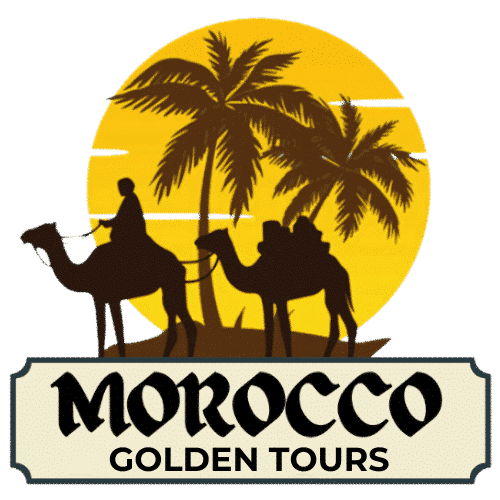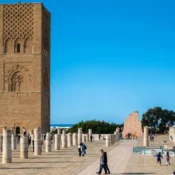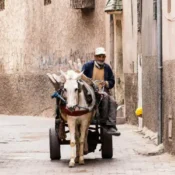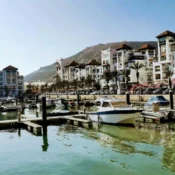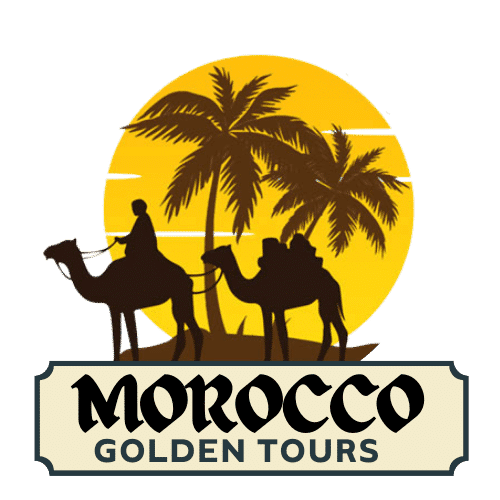What Is the Language of Morocco? Exploring Morocco’s Rich Language Diversity
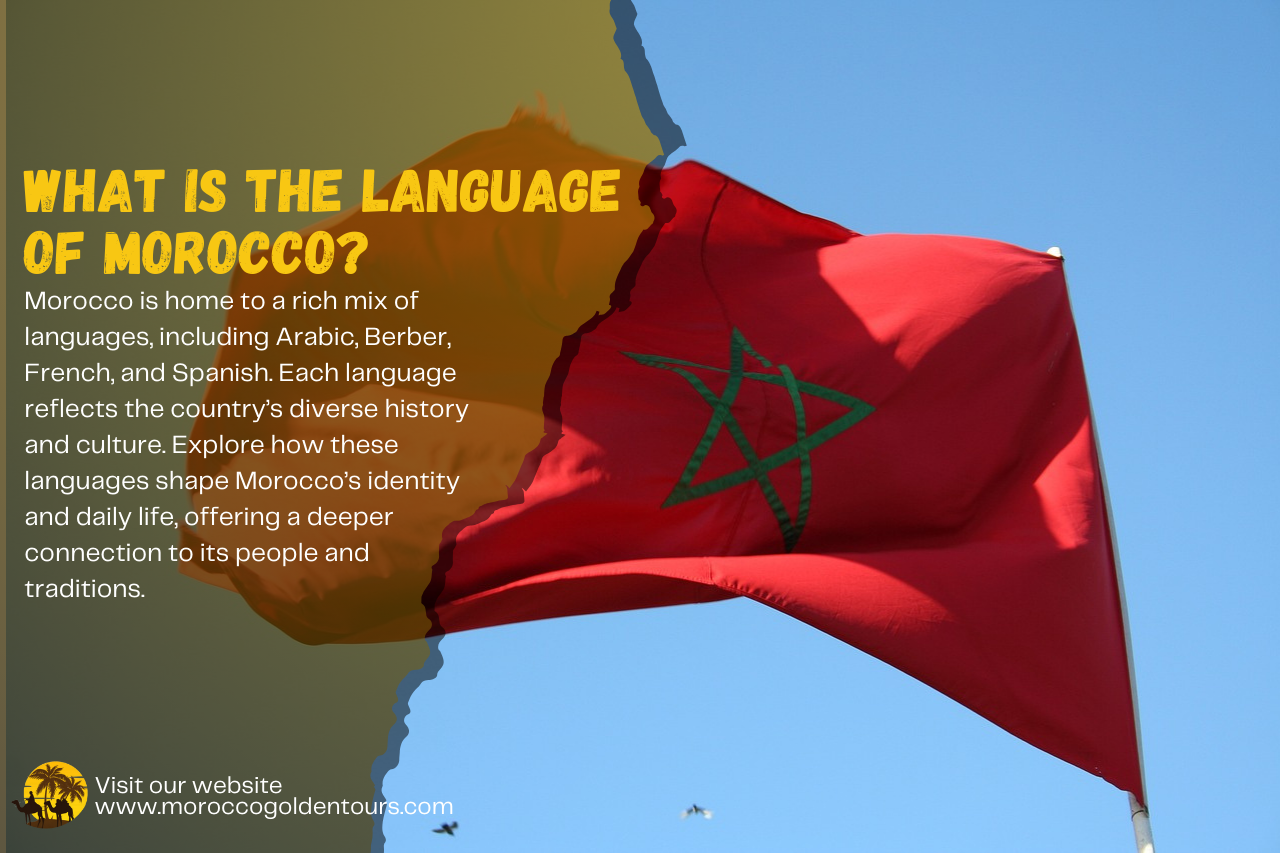
If you’re planning a trip to Morocco, you might be wondering, What is the language of Morocco? Understanding the languages spoken in Morocco will not only enrich your travel experience, but it can also help you connect more deeply with the people and culture. Whether you’re strolling through the vibrant markets of Marrakech, exploring the desert, or visiting ancient cities like Fes and Casablanca, the language is a key part of the journey. In this article, we’ll explore what the language of Morocco is, looking at the different languages spoken and how they shape the country’s unique cultural landscape.
Table of Contents
What Is the Language of Morocco? The Key Languages You Need to Know
Morocco is a country with a fascinating mix of languages. The country’s linguistic landscape is rich, diverse, and deeply rooted in its history. The two primary languages of Morocco are Arabic and Berber, but there are also influences from French, Spanish, and even English. Let’s take a closer look at the main languages spoken in Morocco.
Arabic: The National Language of Morocco
What is the language of Morocco? The official language of Morocco is Arabic, specifically Modern Standard Arabic (MSA). This is the version of Arabic used in writing, official documents, news, and education. While MSA is common in formal settings, it is different from the Moroccan Arabic, or Darija, spoken by most people in daily life.
Moroccan Arabic (Darija)
In everyday conversations, you’ll hear Darija. This version of Arabic is heavily influenced by Berber, French, and Spanish, making it unique to Morocco. Darija is not written in books or used in formal speech, but it is the language that most Moroccans speak at home, in the markets, and in casual settings.
Key points about Darija:
- It’s the most widely spoken language in Morocco.
- It’s a spoken language, not typically written down.
- Darija is constantly evolving due to its blend of influences from different languages.
Berber: The Indigenous Language of Morocco
Another important language in Morocco is Berber, known as Tamazight. It’s the indigenous language of Morocco, spoken by the Berber people, who have lived in the region for thousands of years. Berber was recognized as a national language in 2011, which reflects its importance in the country’s culture and history.
The Different Dialects of Berber
There are several dialects of Berber spoken across Morocco. The main ones include:
- Tashelhit (spoken in the south)
- Tarifit (spoken in the north)
- Central Atlas Tamazight (spoken in the central mountain regions)
Even though Tamazight is an ancient language, it remains a vital part of Morocco’s identity. Today, many Moroccans are bilingual, speaking both Darija and Berber fluently.
Key points about Berber:
- It’s spoken by about 40% of the population.
- Berber is an official language in Morocco, alongside Arabic.
- It has several dialects depending on the region.
French: The Lingua Franca of Morocco
You might be surprised to learn that French plays a significant role in Morocco’s language landscape. While Arabic and Berber are the official languages, French is widely spoken, especially in the cities and in business, education, and government.
Why French Is So Important
Morocco was a French protectorate from 1912 to 1956, and the influence of the French remains strong today. In fact, many schools teach in French, and higher education is often conducted in French. It’s common to hear French in urban areas, in shops, and on the streets of cities like Casablanca and Marrakech.
Key points about French:
- French is spoken by many educated Moroccans, especially in cities.
- It’s used in business, higher education, and the media.
- French is often heard in combination with Arabic or Berber.
Spanish: The Language of Northern Morocco
While Arabic and French dominate in Morocco, Spanish is spoken in certain northern regions of the country, such as Tangier and Tetouan. This is because these areas were once under Spanish control. Today, Spanish is still widely understood and used in daily conversations in these parts.
Key points about Spanish:
- It’s mainly spoken in the northern regions of Morocco.
- It’s a result of historical Spanish influence over these areas.
- Spanish is often used in business and casual interactions in northern cities.
English: A Growing Presence
In recent years, English has become increasingly popular, especially among younger people and in tourist areas. More and more people are learning English in schools and universities, and you’ll often hear it in major cities and tourist destinations.
Key points about English:
- English is widely spoken in tourist areas and by younger generations.
- It’s becoming a second language for many Moroccans, especially in urban centers.
- It’s commonly used in international business and by travelers.
Morocco’s Linguistic Diversity and National Identity
So, What Is the Language of Morocco? As you can see, Morocco is a linguistically diverse country, with each language representing a different aspect of its rich cultural heritage. Arabic is the official language, but Berber, French, Spanish, and English all play important roles in the daily lives of Moroccans.
Language and Identity in Morocco
The way Moroccans use language is deeply tied to their identity. For instance, Arabic and Berber are closely tied to Morocco’s history and cultural traditions, while French reflects the country’s modern connections to Europe and the world. Even in the rural areas, Berber is a vital part of local identity, with older generations often speaking Tamazight as their first language.
Language as a Bridge:
Morocco’s linguistic diversity doesn’t divide the country it unites it. Whether people speak Arabic, Berber, French, or Spanish, they all share a sense of belonging to the same rich cultural and historical narrative.
How to Navigate Language in Morocco
When traveling to Morocco, understanding the country’s languages can help you feel more connected and comfortable. Here are a few tips for navigating the language landscape:
- Learn a Few Words in Darija: Even though Arabic is the official language, Darija is the one that people speak every day. Learning a few basic phrases in Darija can go a long way in making a connection with locals.
- Use French in Cities: If you don’t speak Arabic or Berber, don’t worry! In most cities, you’ll find that many people speak French, especially in shops, restaurants, and hotels.
- Spanish in the North: If you’re traveling to northern Morocco, it’s helpful to know some Spanish. Many people in cities like Tangier and Tetouan speak it.
- English for Tourism: In major tourist destinations, many people understand English, especially in popular spots like Marrakech and Casablanca.
Conclusion: What is the language of Morocco?
Now that you know What Is the Language of Morocco, you can appreciate how the country’s languages shape its vibrant culture. Whether you’re speaking Arabic, Berber, French, or even English, language is a powerful way to connect with the people and the places you visit. The rich diversity of languages in Morocco reflects the country’s long history and its role as a crossroads of cultures.
If you’re planning a trip to Morocco, don’t let the language barrier hold you back embrace it! Learn a few words, engage with locals, and experience the full depth of what Morocco has to offer.
Ready to explore Morocco’s diverse culture firsthand? Plan your trip today with Morocco Golden Tours and immerse yourself in the beautiful world of Morocco’s language and history!
